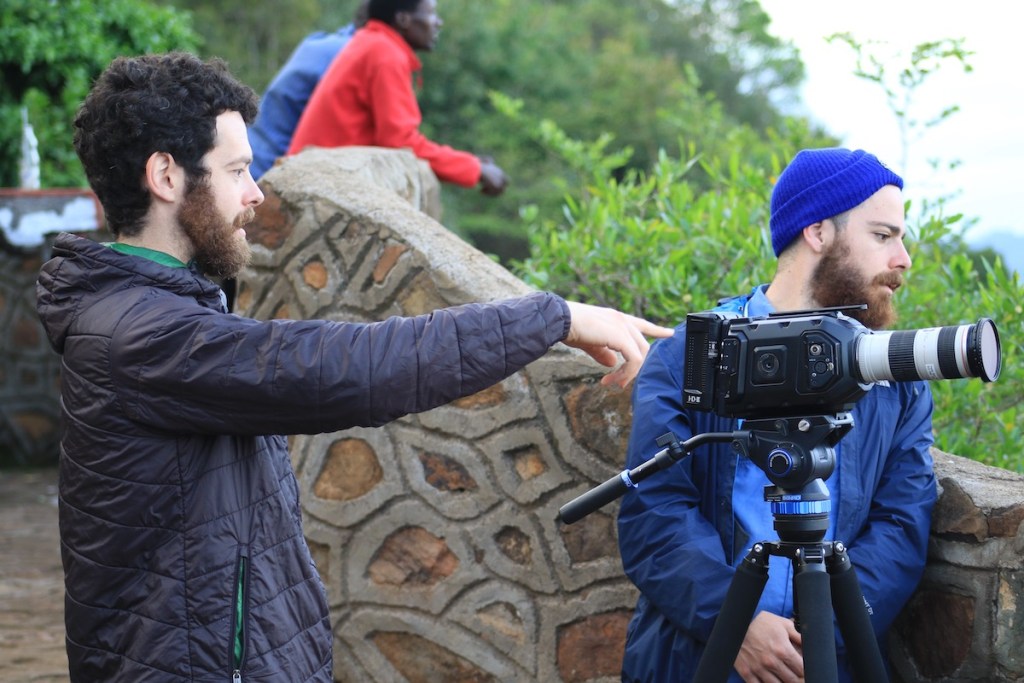Brothers Jacob Seigel Brielle and Isaac Seigel-Boettner were born and raised in bike culture. Both were rolled home from Santa Barbara Cottage Hospital in bike trailers by their cycling-enthusiast parents, providing inspiration for the production company they would eventually start together: Pedal Born Pictures.
The company rose out of the two brothers’ love for filmmaking, storytelling, and activism — all connected by the common thread of bicycling.
Their latest project, a short documentary called A Way Forward, highlights a group of teenage girls in a small village in rural Kenya whose lives were changed through a program that provided them with bicycles for their daily trips to and from school. The film was recognized at the 17th annual MY HERO Film Festival, winning the Dan Eldon Activist Award. Their first film together, With My Own Two Wheels, won the same award in 2010.
“Anywhere you go, there’s bicycles,” Seigel-Boettner said. “Anytime you ride with people, it breaks down walls. It’s more than transportation.” Growing up, the two always knew the power bikes had to connect people. Their parents, both longtime teachers here in Santa Barbara, organized regular trips with classmates, and as far as they can remember, their garages were always filled with more bikes than cars.
When they studied at UC Berkeley — Seigel Brielle majoring in Peace and Conflict Studies, while Seigel-Boettner followed two years later to pursue Film Studies — the two began working on My Own Two Wheels, and through a grant from the university, they got to spend a semester in Rwanda. Getting to see firsthand the power that bicycling had, not just as a community builder but as a resource that could help marginalized groups, changed their outlook and set them on a path to create Pedal Born Pictures.
“Getting to see the power of the bike as more than just a tool or toy,” Seigel-Boettner said. “It’s not transcendental at all times. It’s a means to better improve all these assets.”
Their start-up company has led to working with bicycle-based nonprofits as well as big-name clients like National Geographic and Google, all with their unique brand of bike storytelling.
In A Way Forward, Kenyan teenagers Dianah and Angela struggle with everyday life in a community where women shoulder the bulk of the burden: rising before the sun, fetching water, studying, and cooking breakfast for the family. Their school is more than an hour’s walk away, and many young girls are forced to catch a ride with local motorcycle taxi drivers — dodging their sexual advances and risking being taken against their will. Thanks to a program at their school through World Bicycle Relief, the girls were provided with bicycles to make the trip safely.
Seigel Brielle and Seigel-Boettner spent time with the people in the village, having tea and biscuits daily and even receiving a gifted chicken from a relative. “We spent about a week in that community, going home with the girls and meeting their families,” Seigel Brielle said.
The brothers found that the bike program not only gave the girls a feeling of safety and independence, but it also gave rise to a cycling community. The opening shot shows Dianah, in her school uniform and bright-pink backpack, on a leisurely ride through the nature preserve behind her house. She stops at a serene waterfall, enjoying a moment of quiet made possible by the hand-me-down bicycle from her school.
Sign up for Indy Today to receive fresh news from Independent.com, in your inbox, every morning.
It’s just one of many stories around the world, centered around the freedom of those two wheels, that show the impact that this form of transportation has on communities. Seigel Brielle and Seigel-Boettner hope to continue telling these stories, wherever they find them.
Now they are based in the Bay Area and are working on their next project: a series exploring people “creating community and culture by hand,” Jacob said, starting of course with a local bike shop in Berkeley. The series — which is slated to include wood carvers, pasta makers, and more — hopes to look into the idea of things “made by human touch,” something the brothers say has become a hot-button issue during COVID.
Though they may branch into other territories, their bike roots are deep, and it’s not something that is going away soon. “I still ride to work every day,” Seigel-Boettner said.
Support the Santa Barbara Independent through a long-term or a single contribution.

